Difference between revisions of "DBP1:Dartmouth"
| Line 9: | Line 9: | ||
= Dartmouth Projects = | = Dartmouth Projects = | ||
| − | {| cellpadding="10" | + | {| cellpadding="10" style="text-align:left;" |
| style="width:15%" | [[Image:NAMIC callosum tracts prelim.jpg|200px]] | | style="width:15%" | [[Image:NAMIC callosum tracts prelim.jpg|200px]] | ||
Revision as of 19:06, 11 July 2009
Home < DBP1:DartmouthBack to NA-MIC DBP 1
Overview of Dartmouth DBP 1
The Dartmouth Driving Biological Project examines DW-MRI and fMRI data in patients with schizophrenia to determine association with brain activation during memory tasks.
For more introductory information, follow this link.
Dartmouth Projects
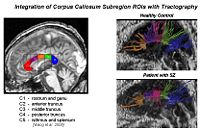
|
Corpus Callosum Fiber TractographyThe goal of this project is to examine the integrity of fibers in the corpus callosum in patients with schizophrenia and determine whether this is associated with brain activation during memory tasks. More... New: P J Wang, et al. Regionally specific atrophy of the corpus callosum in AD, MCI and cognitive complaints. Neurobiol Aging. 2006 Nov;27(11):1613-7. |

|
Fractional Anisotropy in the Uncinate FasciculusOur objective is to measure the FA in the uncinate fasciculus in patients with schizophrenia. This project is based on the methods published by Kubicki et al. and extends that work by including a bipolar disorder control group, and determining whether there is an association between FA and cognitive functioning and symptoms in the patient groups. More... New: AHM 2007: Training on fiber tractography in Slicer with Sylvain Bouix that we can apply to this project as well as investigation of other fibre tracts such as the cingulate bundle. |
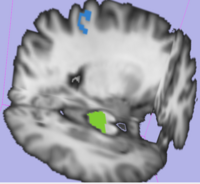
|
Integrity of Fronto-Temporal CircuitryOur objective is to develop methodology that will permit investigators to specify functional MRI regional of interests (fROI) and determine the optimal white matter pathways between the fROIs based on DTI. More... New: AHM 2007: John West had training session with Dennis Jen on new version of POI algorithm. Worked together to read new Dartmouth 3T Philips Data. Further work ongoing to integrate POI into Slicer 3. |
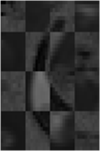
|
Non-Rigid EPI RegistrationOur Objective is to identify optimal ITK method and parameter settings for non-rigid intrasubject registration of T2 EPI, the raw building block images of DTI, to T1 conventional images. Provide software devliverable. More... New: Project Week Results: Jan 2006 |

|
Shape Analysis of the HippocampusOur objective is to examine hippocampal shape in patients with schizophrenia and healthy controls. More... New: Styner M, Lieberman JA, McClure RK, Weinberger DR, Jones DW, Gerig G.: Morphometric analysis of lateral ventricles in schizophrenia and healthy controls regarding genetic and disease-specific factors, Proc Natl Acad Sci USA. 2005 Mar 29;102(13):4872-7. Epub 2005 Mar 16. |
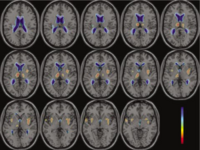
|
Neural Substrates of ApathyWe recently observed reduced volume of the frontal lobe in patients with schizophrenia having high levels of apathy (link to journal below). In the present investigation we are extending our study of the structural correlates of apathy in schizophrenia using the NAMIC toolkit with an emphasis on basal ganglia. More... New: Feb 22, 2006: Sylvain Bouix to visit Dartmouth. |
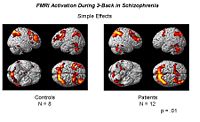
|
Neural Substrates of Working Memory in SchizophreniaThis project assesses working memory using an auditory verbal version of the n-back task paradigm. Three conditions are presented in blocks in counterbalanced order with increasing working memory load demands (0-, 1-, 2- and 3-back). More... New: December 20, 2005: Marek Kubicki visit to Dartmouth. |
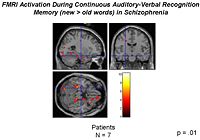
|
Brain Activation during Continuous Verbal Encoding and Recognition Task in SchizophreniaThis project employs an event-related auditory verbal episodic memory probe targeting medial temporal and DLPFC circuitry. The task uses a continuous performance format where concrete nouns are presented initially as new items. Words are then repeated after short or long intervals and the participant is required to make a new/old distinction. This design permits analysis of both encoding and recognition processes. More... New: December 20, 2005: Marek Kubicki visit to Dartmouth. |